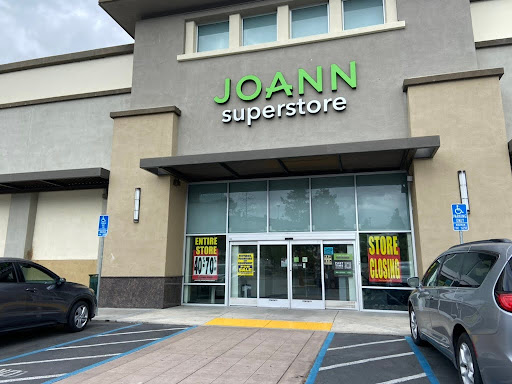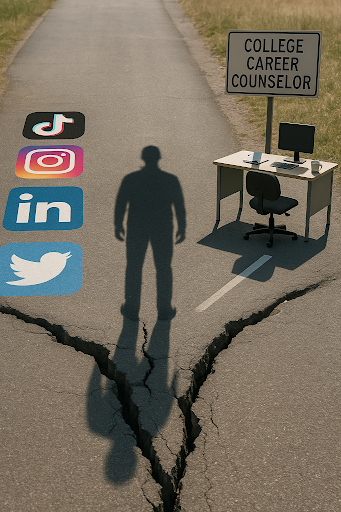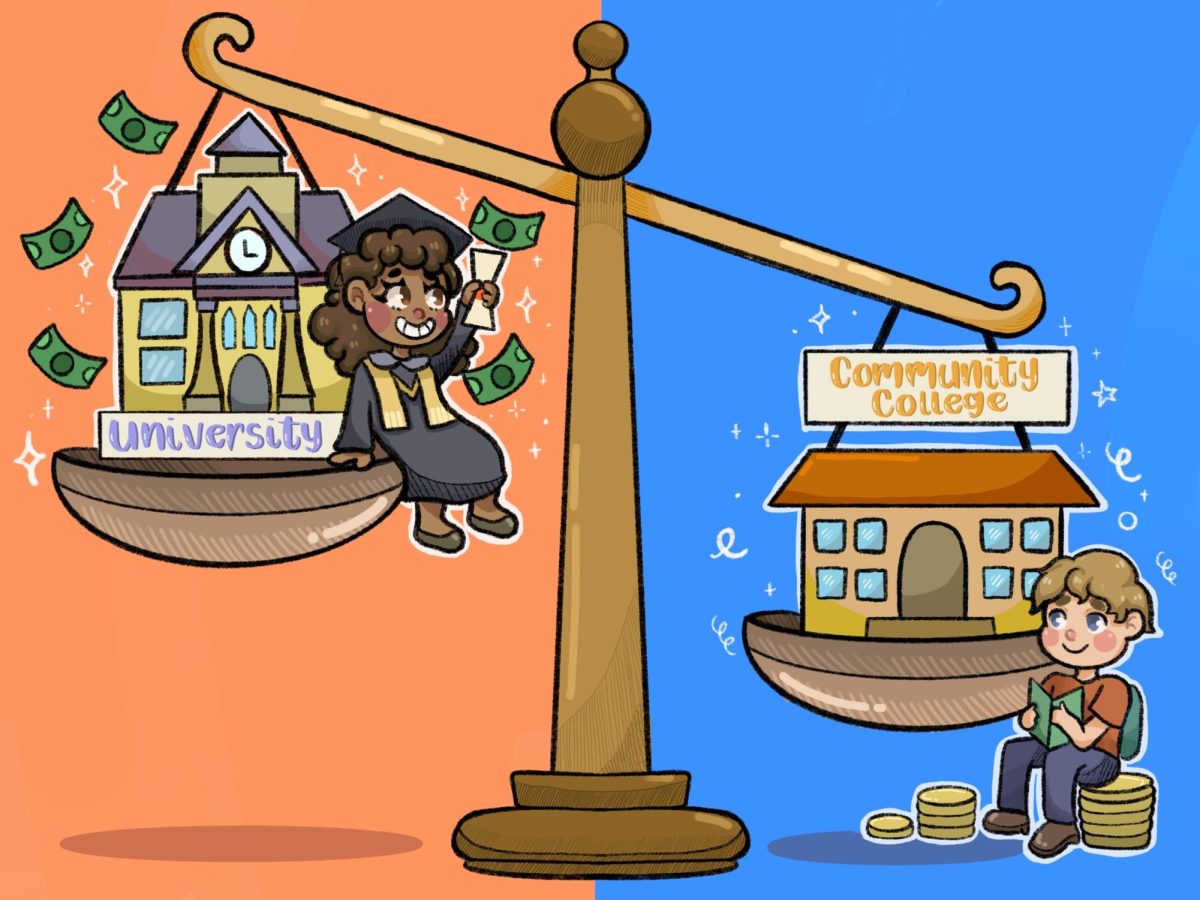In a world where scrolling through TikTok can lead to a job, the role of social media has taken this generation by storm. Shaping students’ post-college careers are up to algorithms, curated for each individual, which often provide more guidance than some feel they get from a human.
“If I didn’t have apps like TikTok or Instagram, I don’t think I’d know half of the different career opportunities that are available to me,” third-year Diablo Valley College student Zinnia Sulymankhel told The Inquirer.
For Sulymankhel and others, social media has become the new career compass. Influencers share their day-in-the-life vlogs portraying every day activities. Earned salaries for these influencers are based on views and video length. The longer your video is, the more views it will attain, the more money you make. Software engineers, digital marketers, and even less traditional roles like full-time content creators or remote freelancers can all use social media to boost their brand. These glimpses offer both inspiration and information, and are often more candid than a traditional job description.
A 2024 survey conducted by Handshake, a career platform for college students, found that 68 percent of undergraduates said social media had a “significant” or “very significant” influence on their career aspirations.
Exposing students to opportunities they hadn’t previously known or even thought about is why social media platforms can be a helping hand especially for those who are stuck not knowing where their potential lies.
Some critics worry that the attraction of social media careers, often portrayed as “glamorous” or “lucrative,” may be veering students’ perceptions of what is realistic or attainable.
“It’s easy to get drawn into the aesthetic of a job when all you see is the highlight reel,” said Dr. Marcus Lee, a career development counselor at UC Berkeley.
“A viral video about a tech job might make it seem like all perks and remote freedom, but it rarely shows the late nights, the job insecurity, or the skills gap that can make entry difficult.”
At the same time, many feel social media can be useful for those who don’t have people around to help them make career choices.
In particular, first-generation college students have said they highly benefit from the transparency and peer-driven content exposed to them. From discussions about salary to resume-building, students are learning more than ever about the career world outside of the classroom.
Nadia Gomez, a third-year online student at Arizona State University, said she found the app LinkedIn very helpful with finding an internship.
“I found my summer internship through the app LinkedIn. It connected me with the direct people to talk to, and I just sent my resume from there,” Gomez said.
But LinkedIn has developed into more than just a digital resume for many. Now, it’s a place for students to follow thought leaders, engage with professionals in their field of interest, and receive thoughtful mentorship through direct messages.
Students benefit in many ways by having an online resource to help guide them through a stepping stone in their lives.
“I can see how social media may seem like a waste of time to some people, but not many people realize how big a tool it can be with finding your way to success,” Gomez said.











































































